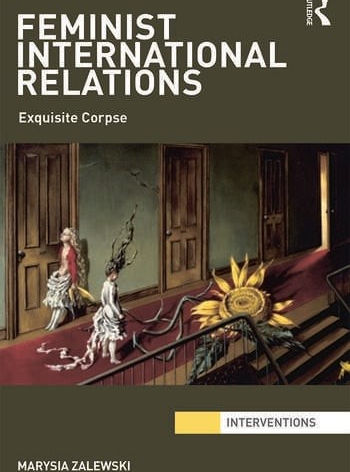LONELINESS METHODS LAB
Scholars came up with diverse METHODS to study loneliness and solitude
However, before we proceed to methods, we can explore three blocks of literature dedicated to empirical loneliness analysis across disciplines. I find these three research traditions vital since they enable us to outline connections between loneliness anxiety and related concepts like shame, trauma, ontological security, collective identity, sovereignity, and political exceptionalism (with the latter as a consequence/condition of "geopolitical loneliness").
The first corpus of literature I label as "psychological", since loneliness is a political emotion, which requires taking into consideration the apparatus currently applied in political psychology. Here pioneers of psychological research on loneliness include, for example, Ronald Laing, Clark Moustakas, Rollo May, Carl Rogers, Abraham Maslow, Irvin D. Yalom, Michael Bader, Jacqueline Olds and Richard Schwartz. For an overview on that literature see for example, Ben Mijuskovic. The Philosophical Roots of Loneliness and Intimacy. Political Narcissism and the Problem of Evil, 2022.
The second "cluster" of authors is focused more on the sociological and political dimensions of loneliness, which include works on ideology by Gregory Zilborg, Hannah Arendt, Erich Fromm, Zygmunt Bauman, but also the governmentality and biopolitics of Foucault and Agamben. Here I would also put literature on master narratives of ontological security in modern international relations (Catarina Kinnvall, Ontological Insecurities and Postcolonial Imaginaries: The Emotional Appeal of Populism), as well as contemporary research on the existential turn in IR (for example, Bahar Rumelili, Integrating Anxiety into International Relations Theory: Hobbes, Existentialism, and Ontological Security; Jelena Subotić and Filip Ejdus. Towards the existentialist turn in IR: introduction to the symposium on anxiety ; and Andrew Hom & Cian O’Driscoll Existentialism and international relations.
I would also include in this "political" group case studies on particular isolationisms and geopolitical loneliness in different countries, for example, "taking back control" during Brexit or "making America great again" in the US under Trump and so on (see, Peter Spiro,The New Sovereigntists: American Exceptionalism and Its False Prophets; Adriana Sinclair & Michael Byers. When US Scholars Speak of "Sovereignty", what do they Mean?; Seyla Benhabib. The new sovereigntism and transnational law: Legal utopianism, democratic scepticism and statist realism; Michael Freeden. After the Brexit referendum: revisiting populism as an ideology.
The third block of "loneliness literature" comes from philosophical and cultural studies, particularly its phenomenological and existential traditions. Before Foucault, the problem of human liberation from subjectification and commodification was considered by a number of thinkers. Søren Kierkegaard and Paul Tillich, for example, looked at the religious dimension, which should never be disregarded when talking about loneliness anxiety as an existential reservoir for political ideology. Russian philosopher Nikolay Berdyaev explored four modes of loneliness in relation to human conformism and non-conformism (see Akopov, Social ideal: “ontological security” and “politics of loneliness” (in Russian)). Jean Baudrillard addressed the issue of loneliness as a result of a replacement of reality with the so-called "simulacrum." This idea was developed by Cynthia Weber in her notion of "state simulacrum," by which she understood performative practices of imitation of state sovereignty through politically charged talks on sovereignty and intervention (Cynthia Weber, Reconsidering Statehood: Examining the Sovereignty/Intervention Boundary). That sparked the discussion of what
"reality" is, who is "the authentic subject" of reality in more general terms (Albert Levi, The Meaning of Existentialism for Contemporary International Relations. In Heideggerian and Sartrean terms it demands an answer "how can the individual live authentically in a society steeped in inauthenticity" (see Maiken Umbach & Mathew Humphrey. Authenticity: The Cultural History of a Political Concept).
All the authors mentioned above applied the variety of different methods and methodologies of "loneliness studies." Below I would start by pointing towards only four of them , inviting the readers to send me their descriptions of other loneliness research methods to be potentially added with your authorships on this web platform in the future:
1. Narrative analysis (NA) is important, for example, in political research on the discursive strategies of ontological security. In particular, in explaining how “politics of loneliness” empowers Russian collective gendered nationalism we can draw from Philipp Hammack’s “theory of master narrative engagement" Narrative and the politics of meaning. (2011). Hammack defines master narrative engagement as the process by which individuals engage with competing storylines of history and identity perceived as socially compulsory. “Master narrative” for him as a collective story which is so central to the group’s existence that it commands identification and integration into the personal narrative. In Hammack’s logic, an individual is destined to navigate herself through “the discursive waters of these master narratives” and make decisions about which aspects of them to appropriate and which to repudiate (Ibid). This is how elements of the national storyline become part of personal narratives individuals construct to achieve a sense of self-sameness. Importantly for loneliness analysis, Philipp Hammack and Andrew Pilecki, imply that politics is emotionally linked to the personal through the process of engagement with narratives about the nation and its imagined past. Social meaning is provided to an individual when the narrative speaks to a fundamental human need for collective solidarity. More on that see in Hammack’s Essentials of narrative Analysis. Another example of NA is for example Andrey Tsygankov’s Russia's Foreign Policy: Change and Continuity in National Identity. Other examples of NA in IR are works by Raymond Taras on Russian exceptionalism, Bo Petersson on decoding of Russia's political myths and Olga Malinova on narratives of Russian collective memory and Putin’s regime.
2. Another method that can be applied for research in existential international relations is Interpretative phenomenological analysis (IPA) . The aim of IPA is to explore how participants are making sense of their personal and social worlds. Therefore, the main currency for an IPA study is the meanings particular experiences, events, states hold for participants. This phenomenological approach involves detailed examination of the participant’s lifeworld. It is concerned with an individual’s personal perception or account of an object or event, as opposed to an attempt to produce an objective statement of the object or event itself. The assumption in IPA is that the analyst is interested in learning something about the respondent’s psychological world. This may be in the form of beliefs and constructs that are made manifest or suggested by the respondent’s talk, or it may be that the analyst holds that the respondent’s story can itself be said to represent a piece of the respondent’s identity (Smith, J. A., & Osborn, M.). Either way, meaning is central, and the aim is to try to understand the content and complexity of those meanings rather than measure their frequency (more on that see John Smith and paul Flowers, Interpretative Phenomenological Analysis: Theory, Method and Research. IPA often suggests collecting data through semistructured interviews and surveys (on the latter see, for example, Svend Brinkmann and Steinar Kvale’s InterViews: Learning the Craft of Qualitative Research Interviewing). IPA was, for example, used for empirical survey To conceive someone’s ‘regime of truth’ one must first acknowledge her ‘regime of loneliness’: a feminist account on ‘lifeworlds’ of Global Russian after 24/02.
3. Here comes a third group pf methods – feminist methodology (FM) . In particular we talk about the so-called post-positivist/poststructuralist feminism approach, explaining the central focus on post-structures, identity formation, and the decentering of structure. Here pivotal are, for example, books by Marysia Zalewsky on feminist IR and particularly on feminist postmodernism methods in Gender(I)R.
We can see such methodology applied to research on anthropology of loneliness and gendered nationalism on Russian 2021-2023 political posters (Akopov 2023) combining it with method of autobiographic IR (with the latter taken from Naeem Inayatullah and Aida Hozic). Another dimension of FM includes combination of participant observation and creative writing (see, for example, Akopov Sergei. ‘EpiVOGUE: how writing a novel about transnational loneliness made me rethink my strategy of survival’. Ed. by Shine Choi, Cristina Masters, Swati Parashar & Marysia Zalewski. Writing Saved Me (Creative Interventions in Global Politics).
4. Finally, there are visual anthropology methods of analysis which can be applied, for example, to analysis of political representations of different collective emotions, like loneliness. As pointed by Roland Bleiker and Emma Hutchison, representations are, in some sense, all we have when it comes to understanding emotions. Even though emotions have social origins and can resonate collectively, emotions are inherently internal. One person can never really know how another person feels. All one can understand is the manner in which emotions are expressed and communicated; whether this is done through touch, gestures, speech, sounds, or images. Eventually political representation is the process through which individual emotions become collective and political (Ibid.).
Cynthia Weber and Michael Shapiro were among the pioneers of visual anthropology methods in IR. Weber noted that “Popular films provide us with ready-made, somewhat delimited “other worlds.” In the vast cinemascapes of popular culture, there is no shortage of worlds for us to critically view. Even if a film is set in our “culture,” in our sovereign nation-state, and in our times, the world the film presents is not “our” world, for we do not occupy this cinemascape. Yet because the film tries to depict our world, we usually understand this “other world” and identify with it. This gap between occupying a cinematic world and identifying with it enables us to critically read “other worlds” and the myths in them” (fifth edition of that book came out in 2021). This Cynthia Weber’s logic was followed in research about phallocentric positionalities: biopolitics of feminine loneliness in Russian cinemascape (Akopov, forthcoming in Visual Anthropology, 2023).


















